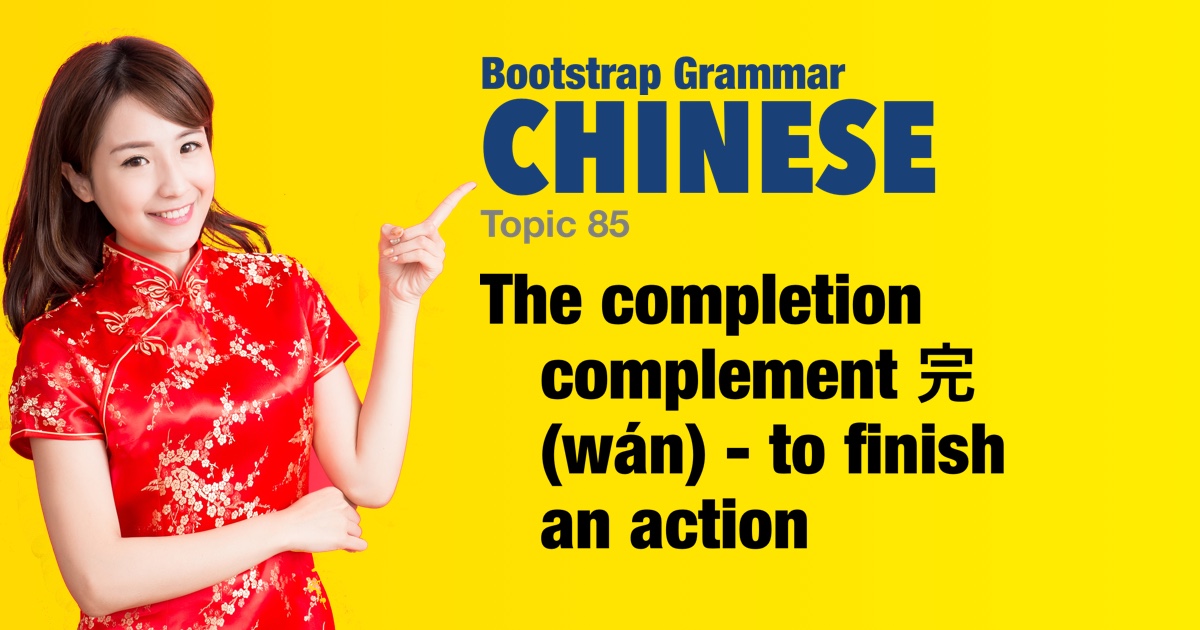Chinese grammar - The completion complement 完 (wán) - to finish an action |
|||
|
|||
We previously saw 完 (wán) used to form compound verbs that had a sense of successful completion. It can be used more generically as 'completion complement' to express the full completion of an action or task. — So rather than 'I ate dinner', we have 'I finished eating dinner'. 完 inherently conveys the idea that an action has fully concluded and as such is always used in the past tense with the Completed Action Marker 了 (le) or the negating past tense marker 没有 (méiyǒu). Used in this way 完 allows appears immediately after the root verb. |
| Examples: | |
|
我吃完了晚饭。
wǒ chī wán le wǎnfàn. I ate (finished eating) dinner. |
|
|
我没有吃完晚饭。
wǒ méiyǒu chī wán wǎnfàn. I didn't finish eating dinner. |
|
|
她看完了那部电影。
tā kàn wán le nà bù diànyǐng. She watched (finished watching) that movie. |
|
|
我读完了这本书。
wǒ dú wán le zhè běn shū. I read (finished reading) this book. |
|
|
你做完了作业吗?
nǐ zuò wán le zuòyè ma? Did you do (finish) your homework? |
|
|
你吃完了饭吗?
nǐ chī wán le fàn ma? Did you finish eating? |
|
|
我没吃完晚饭。
wǒ méi chī wán wǎnfàn. I did not finish eating dinner. |
|
|
因为很辣所以我没吃完。
yīnwèi hěn là suóyǐ wǒ méi chī wán. Because (it was) spicy I did not finish eating. |
|
|
你喝完了那杯茶吗?
nǐ hē wán le nà bēi chá ma? Have you finished drinking that cup of tea? |
|
|
因为茶很烫所以我没喝完。
yīnwèi chá hěn tàng suóyǐ wǒ méi hē wán. Because the tea is hot, so I didn't finish.
|
|
|
他修完车了吗?
tā xiū wán chē le ma? Did he finish repairing the car?
|
|
|
你为什么没有吃完蛋糕?
nǐ wèishénme méi yǒu chī wán dàngāo. Why didn't you finish the cake? |
|
 |
|



